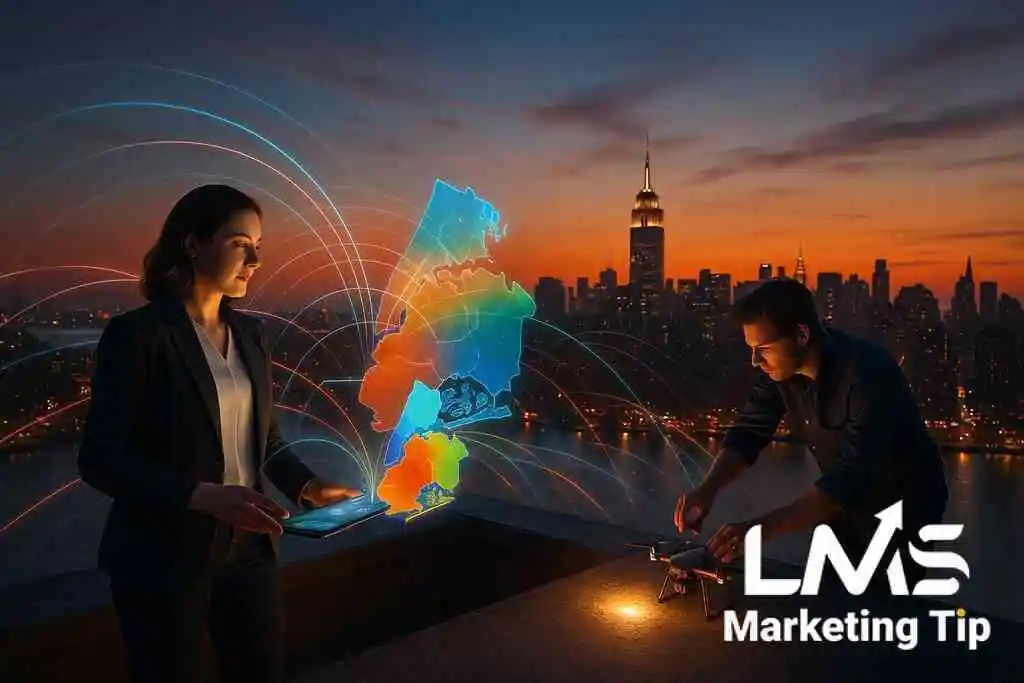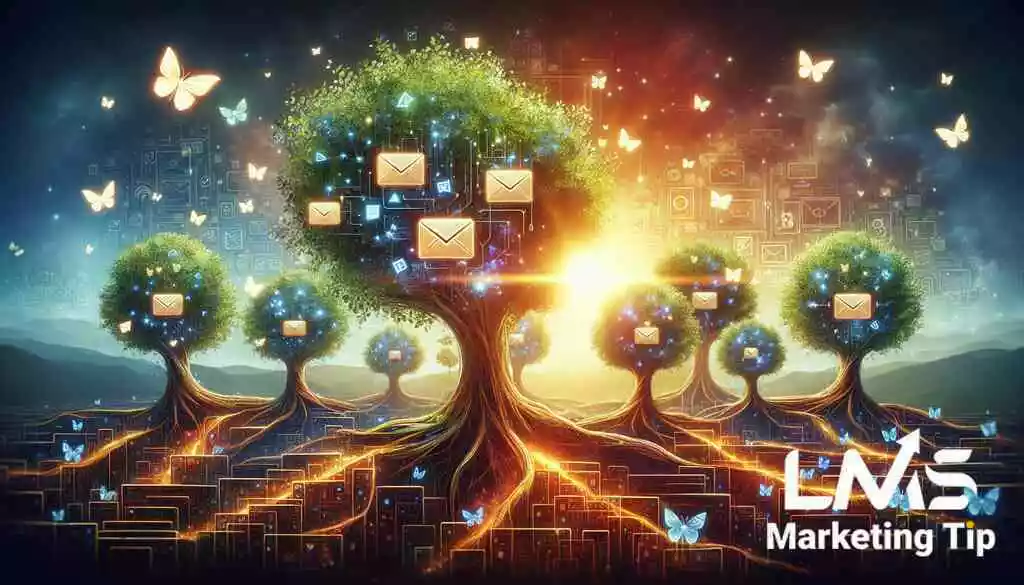
Crafting the Foundation
Defining Your Target Audience
In the dynamic realm of content marketing, understanding and defining your target audience is the cornerstone of any successful strategy. It involves going beyond basic demographics to grasp the needs, challenges, habits, and preferences of your audience. This meticulous approach ensures that your content resonates and engages effectively. Tailoring your message to meet the specific needs of your audience enhances relevance and fosters a more profound connection, making your marketing efforts more impactful. In 2024, the emphasis on data-driven audience segmentation will be paramount, leveraging advanced analytics to fine-tune content strategies for specific user groups.
Setting Content Marketing Goals
Setting clear, measurable goals is essential to navigate the competitive terrain of content marketing in 2024. These goals, whether they relate to increasing brand awareness, generating leads, or boosting engagement, must align with your overall business objectives. SMART goals are specific, measurable, achievable, relevant, and time-bound- they act as a roadmap, guiding your content strategy and providing a framework for measuring success. This systematic approach ensures that every piece of content contributes to your overarching marketing objectives, enabling a more focused and effective marketing campaign.
Understanding the Content Marketing Landscape in 2024
To thrive in 2024’s content marketing landscape, staying ahead of emerging trends and technologies is critical. The integration of AI in content creation, the rise of interactive content, and the ongoing dominance of video content are just a few of the trends shaping the future of content marketing. By understanding these digital content tendencies, brands can harness innovative tools and methodologies to produce more engaging, relevant, and impactful content. Keeping abreast of these trends enables marketers to adapt strategies, ensuring they remain competitive and resonate with their target audience.
Establishing a Brand Voice and Storytelling Approach
Developing a robust and consistent brand voice and leveraging storytelling are powerful strategies for creating memorable and engaging content. A distinctive brand voice reflects your company’s personality, values, and mission, helping to differentiate your brand in a crowded marketplace. Storytelling, on the other hand, transforms your marketing messages into compelling narratives that capture attention, evoke emotions, and build deeper connections with your audience. In 2024, the ability to weave authentic stories around your brand and deliver them through a unique brand voice will be instrumental in captivating and retaining your target audience.
Content Creation Masterclass
Generating Ideas and Planning Your Content Calendar
The inception of any successful content marketing strategy begins with generating captivating ideas and meticulously planning your content calendar. In 2024, the importance of leveraging content marketing strategies in 2024 to create fresh, innovative ideas cannot be overstated. This process involves analyzing market trends, understanding audience preferences, and identifying content gaps your strategy can fill. A well-structured content calendar is vital for organizing these ideas and ensuring a consistent publishing schedule that keeps your audience engaged and informed. It’s a delicate balance of forward-thinking and flexibility, allowing you to adapt to new insights or market changes while maintaining a steady stream of quality content. Setting themes, key dates, and content types ahead of time aids in crafting a coherent narrative that aligns with your brand’s marketing goals, ultimately making your content strategy more effective and manageable.
Engaging Content Creation Strategies
In the digital age, creating engaging content that stands out amid the noise is crucial. It involves understanding the art and science of creating engaging content, where the art lies in crafting compelling narratives that resonate with your audience’s emotions and interests and the science in leveraging data analytics to understand what captures their attention. In 2024, successful content creation hinges on a deep understanding of user intent, the integration of multimedia elements, and an emphasis on storytelling to create a memorable experience. Employing interactive formats like quizzes, polls, and dynamic infographics can significantly boost engagement. Furthermore, personalizing content to reflect the reader’s journey creates a more meaningful interaction, increasing the likelihood of conversion. Balancing informative and entertaining content tailored to the preferences identified in your audience research ensures that your content not only attracts but also retains viewer interest.
Incorporating SEO-friendly Techniques for Better Visibility
As the digital landscape continues to evolve, incorporating SEO-optimized content remains a cornerstone of content marketing. In 2024, this means going beyond keyword stuffing to a more sophisticated approach that includes understanding search intent, optimizing for voice search, and ensuring content is mobile-friendly. A focus on creating high-quality, authoritative content that answers users’ queries effectively will play a pivotal role in improving search engine rankings. Structuring content with clear headings, using engaging meta descriptions, and optimizing images and videos not only enhances SEO but also improves the user experience. By aligning content creation with best SEO practices, marketers can ensure their message reaches a broader audience, driving more organic traffic to their sites.
Leveraging AI in Content Production
The incorporation of AI for marketing content in 2024 is transforming content production, making it more efficient and personalized. AI tools can analyze vast amounts of data to generate insights on content performance and audience preferences, informing more effective content strategies. From automating mundane tasks like data analysis and grammar checks to more complex applications like predictive analytics and content personalization, AI is enabling marketers to create highly targeted, engaging content at scale. Moreover, AI-generated content is becoming increasingly sophisticated, capable of producing drafts for articles, social media posts, and more, freeing up creative professionals to focus on strategy and nuanced storytelling. Embracing AI in content production can significantly enhance content relevance, engagement, and, ultimately, ROI in content marketing efforts.
Video Marketing Strategy and Podcast Marketing Trends
The surge in popularity of video and podcast content continues unabated into 2024, necessitating a strategic approach to both mediums. Practical video marketing approaches entail creating content that is authentic, engaging, and tailored to the platforms where your audience spends their time, from YouTube to social media networks. The focus should be on storytelling, with quality content that adds value to the viewer’s life, whether through education, entertainment, or inspiration. Similarly, the rise of digital strategies for podcasts reflects a growing preference for content that can be consumed on the go. Podcasts offer a unique opportunity to build a deeper connection with your audience through in-depth discussions, interviews, and storytelling. Whether you’re leveraging video or audio, the key is to remain consistent, authentic and focused on providing value to stand out in this crowded content space.
Maximizing Content Distribution
Optimizing Social Media Content Marketing
In 2024, the strategic optimization of social media content marketing becomes even more pivotal for brands aiming to amplify their online presence. With platforms continually evolving, it’s crucial to stay updated with algorithm changes and new features to craft content that stands out. Tailoring content to each platform, whether through short-form videos, interactive polls, or engaging stories, can significantly increase engagement rates. Additionally, scheduling posts during peak engagement times and leveraging social networks for content marketing insights to understand what resonates with your audience can drive traffic and enhance brand visibility. Integrating user-generated content further personalizes the experience for followers, making your brand feel more relatable and trustworthy.
Exploring New Content Distribution Channels
The digital landscape in 2024 offers a plethora of new and emerging channels for content distribution, pushing brands to explore beyond conventional platforms for untapped audience engagement opportunities. From augmented reality experiences to blockchain-based social networks, these innovative channels present unique ways to connect with audiences. Identifying and leveraging channels for content distribution that align with your target audience’s preferences can significantly broaden your reach and impact. It involves experimenting with different mediums and measuring their effectiveness in real time to refine strategies for maximum engagement. By staying ahead of the curve and embracing diverse distribution methods, brands can gain a competitive edge in attracting and retaining consumer attention.
Email Marketing Content Best Practices
Email marketing remains a cornerstone of effective content distribution in 2024, offering direct communication with your target audience. To maximize impact, emails should be personalized, concise, and designed with the reader in mind. Utilizing segmentation, email marketing strategies for content can be tailored to various audience interests and behaviors, increasing the relevance and engagement of sent content. Incorporating interactive elements such as polls, surveys, and animated CTA buttons can boost open rates and conversions. Furthermore, A/B testing subject lines, layouts, and messaging provides valuable insights that inform future campaigns. Regularly analyzing email campaigns’ performance helps in understanding audience preferences and optimizing your approach for better results.
Utilizing Influencer Content Collaborations
In 2024, leveraging influencer content collaborations offers a powerful avenue to enhance content distribution and reach. Collaborating with influencers who resonate with your brand values and target audience can extend your content’s visibility across various platforms. Influencers add credibility and a personal touch to your marketing messages, making them more relatable to potential customers. Executing successful influencer collaboration in content requires a clear understanding of each party’s expectations and ensuring alignment with brand objectives. This strategy not only amplifies your content’s reach but also enriches it with fresh perspectives and insights, fostering deeper connections with your audience.
Content Repurposing Strategies
In the quest for maximizing content distribution in 2024, repurposing existing content emerges as a strategic and efficient approach. Transforming a single piece of content into multiple formats, such as converting blog posts into infographics, videos, podcasts, or social media snippets extends, its lifecycle and appeal across different audience segments. This method leverages the initial effort and investment, ensuring broader exposure and reinforcement of key messages. Employing repurposing strategies for content allows brands to consistently present their message across platforms, catering to varying consumer preferences for content consumption. It enhances SEO through diversified content types and backlinks, driving traffic to the original site and improving online visibility.
Enhancing Engagement and Conversion
Personalization and User Experience in Content
The focal point of any effective content marketing strategy in 2024 is centered on personalization and optimizing the user experience. Personalized content strategies not only cater to individual preferences and behaviors but also significantly enhance the overall user experience. As digital landscapes become increasingly saturated, the ability to curate content that feels specifically tailored to each individual’s interests and needs is what sets brands apart. This approach requires a deep understanding of your target audience, facilitated by data analytics and behavioral insights. By leveraging technologies and platforms that allow for dynamic content delivery, brands can achieve a level of personalization that resonates on a personal level, driving engagement and fostering loyalty.
Mobile Content Optimization
With the vast majority of internet users accessing content via mobile devices, optimization for mobile content has become a non-negotiable aspect of content marketing in 2024. Ensuring that your content is fully responsive and easily consumable on a wide range of devices is critical. This includes optimizing images and videos to load quickly on cellular data, utilizing mobile-friendly layouts, and ensuring that interactive elements function seamlessly on touch screens. The goal is to provide a frictionless browsing experience that keeps users engaged, regardless of the device they are using. Google’s shift towards mobile-first indexing further underscores the importance of mobile optimization, directly impacting your SEO efforts and online visibility.
Interactive Content Experiences
The future of content marketing also lies in the ability to offer interactive experiences in content, transforming passive consumers into active participants. This can range from simple quizzes and polls to more complex augmented reality (AR) or virtual reality (VR) experiences. Interactive content not only boosts engagement but also increases the likelihood of content being shared, expanding its reach. Moreover, it provides valuable data on user preferences and behaviors, which can inform future content strategies. In 2024, brands leveraging interactive content effectively can expect to see a significant boost in user engagement and session durations, directly contributing to improved SEO rankings and conversion rates.
Incorporating User-generated Content
Leveraging user-generated content in marketing is a powerful strategy for enhancing engagement and conversion. It encourages a sense of community and trust among users, as content created by peers is often perceived as more authentic and reliable than traditional marketing messages. Whether it’s through reviews, social media posts, or contest submissions, user-generated content can significantly amplify your brand’s presence and credibility. Not only does it provide fresh, diverse content that can improve SEO, but it also fosters a more engaged and loyal customer base. Encouraging user-generated content requires a proactive approach, including creating campaigns that invite participation and actively showcasing contributions across your digital platforms.
Content Marketing for Lead Generation
The ultimate goal of content marketing is not just to inform and engage but also to drive actions that contribute to the business’s bottom line. Effective content marketing for lead generation involves creating targeted content that guides prospects through each stage of the buyer’s journey. From awareness to consideration and decision, each piece of content should be designed with the purpose of moving the user closer to conversion. Employing calls-to-action (CTAs) strategically, offering valuable resources in exchange for contact information, and optimizing landing pages are all critical components of a successful lead-generation strategy. By measuring the ROI in content marketing, businesses can refine their approach, focusing on content types and channels that deliver the best results for their investment.
Measuring Success and Adjusting Strategies
Audience Research for Content Insights
Audience research is the backbone of any successful content marketing strategy, especially when looking ahead to 2024. Effective audience research goes beyond analyzing basic demographic information; it delves into understanding the behaviors, preferences, and content consumption patterns of your target audience. Tools and technologies available for audience research for content insights allow marketers to gather detailed data, enabling the creation of more targeted and relevant content. By regularly conducting this research, brands can stay attuned to changing audience needs and preferences, ensuring their content remains impactful and engaging.
Content Marketing Analytics and ROI Evaluation
Evaluating the return on investment (ROI) of your content marketing efforts is essential to determine their effectiveness and inform future strategy. In 2024, leveraging advanced analytics tools will provide in-depth insights into various metrics, such as engagement rates, conversion rates, and overall content performance across different platforms. Integrating these analytics with business outcomes allows marketers to clearly understand how content contributes to achieving broader company goals. Regular ROI evaluation helps pinpoint areas for improvement and ensure that marketing resources are allocated efficiently to maximize results.
Case Studies: Success Stories and Lessons Learned
Analyzing case studies of successful content marketing campaigns provides valuable lessons that can shape future strategies. These cases highlight effective tactics, innovative ideas, and common challenges faced during the implementation of content marketing strategies. By examining both the methods employed and the measurable outcomes, marketers can gain insights into what works best in their industry. Furthermore, case studies offer a comprehensive understanding of how specific tactics can be adjusted or scaled for improved performance. Sharing these success stories within the marketing community not only inspires innovation but also fosters a culture of continuous learning and improvement.
Adjusting Your Digital Content Trends for 2024
The digital content landscape is ever-evolving, with new trends emerging each year. Keeping abreast of these trends and adjusting your content marketing strategy accordingly is crucial for staying competitive. In 2024, expect to see a shift towards more personalized, interactive, and multimedia-rich content driven by advancements in technology and changing consumer expectations. Brands that can quickly adapt their strategies to leverage these trends will enjoy a distinct advantage. This requires staying informed about the latest digital content trends and being ready to experiment with new formats, platforms, and technologies.
Future-proofing Your Content Marketing Strategy
Future-proofing your content marketing strategy involves anticipating changes in the marketing environment and preparing to adapt. This means building a flexible approach that can evolve with technological advancements, shifts in consumer behavior, and changes in the competitive landscape. Incorporating personalized content strategies ensures your content remains relevant and engaging for your target audience, regardless of how the market evolves. Additionally, investing in skills development for your team and leveraging data analytics for insights are critical steps in ensuring your content marketing efforts remain impactful in the long term. By prioritizing adaptability, continuous learning, and innovation, brands can not only navigate the challenges of 2024 but also set themselves up for success in the years to come.
Conclusion: The Path Forward in Content Marketing
Recap of Key Strategies for 2024
As we navigate the shifting landscapes of content marketing into 2024, it’s essential to reaffirm the core strategies that will drive success. Effective content marketing in the coming year hinges on a deep understanding of your target audience, creating engaging and relevant content, and leveraging the latest digital technologies. From incorporating AI in content production to optimizing for mobile and focusing on storytelling within marketing, these strategies are designed to create a dynamic and impactful marketing ecosystem.
Moreover, personalized and interactive content experiences, alongside robust distribution channels, including social media and influencer collaborations, will play a pivotal role. Coupled with a strong SEO foundation and a commitment to data-driven decision-making through content analytics, these strategies will ensure that brands can connect with their audience more effectively than ever before.
Continued Learning and Adaptation
The realms of digital marketing and content creation are in constant evolution, spurred by technological advances and changing consumer behaviors. For marketers and businesses, this means that continued learning and adaptation are not just beneficial but necessary. Keeping abreast of emerging trends, such as the rise of voice search optimization or the integration of augmented reality in content, enables marketers to stay ahead in a competitive field.
Investing in regular training, attending industry conferences, and participating in professional forums can equip marketing teams with the foresight and flexibility needed to pivot their strategies effectively. As new platforms emerge and audience preferences shift, a commitment to learning will facilitate swift adaptation, ensuring that your content marketing stays relevant and resonant.
Embracing Innovation in Content Marketing
The future of content marketing is intrinsically linked to innovation- both in the tools we use and the narratives we craft. As we traverse 2024 and beyond, embracing innovative approaches, such as strategy for visual content, will be crucial in capturing and retaining audience attention. Experimenting with new formats, exploring different storytelling mediums, and integrating cutting-edge technologies can elevate your content strategy from good to groundbreaking.
The essential element is to foster a culture of creativity within your team, encouraging risk-taking and out-of-the-box thinking. In doing so, brands can not only differentiate themselves in crowded markets but also build deeper connections with their audience through memorable content experiences.
Final Thoughts and Encouragement
As we look ahead to the future of content marketing, opportunities abound for those ready to adapt, innovate, and engage with their audience on a deeper level. The strategies outlined in this guide provide a roadmap for navigating the complexities of content marketing in 2024, emphasizing the importance of understanding your audience, leveraging new technologies, and fostering authentic connections.
Marketing Tip invites you, whether you’re a digital marketing agency, a small business owner, or a marketing professional, to view these changes not as hurdles but as stepping stones to greater engagement, creativity, and success in your marketing efforts. Together, let’s embrace the dynamic nature of content marketing, continuously striving for excellence and innovation in everything we do.
Frequently Asked Questions
Question: How can Marketing Tip help businesses define their target audience for crafting effective content marketing strategies in 2024?
Answer: Marketing Tip excels in delving deep into audience analysis, utilizing cutting-edge data analytics and behavioral insights to define target audiences with precision. By understanding the nuances of your audience’s needs, challenges, and consumption habits, we tailor content marketing strategies that resonate on a personal level. Our expertise in identifying and segmenting audiences ensures that your marketing efforts in 2024 will engage your desired customer base effectively, driving both relevance and results.
Question: What role does storytelling play in your ‘Guide to Effective Content Marketing in 2024’, and how does Marketing Tip incorporate this in its services?
Answer: Storytelling is a cornerstone of our content marketing approach, as highlighted in our ‘Guide to Effective Content Marketing in 2024’. We believe that storytelling humanizes your brand, creating authentic narratives that significantly boost engagement and conversion rates. Marketing Tip incorporates storytelling by crafting compelling content narratives that reflect your brand’s values and mission, engaging customers in a meaningful way. Through strategic storytelling, we elevate your brand’s presence, fostering deeper connections with your audience. Insights into creating compelling narratives can be found in our detailed Guide to Effective Web Design for SMBs Near Me, emphasizing how design and content work synergistically.
Question: Can Marketing Tip enhance our content marketing ROI with the integration of AI and advanced analytics mentioned in your guide?
Answer: Absolutely. At Marketing Tip, we harness the power of AI and advanced analytics to optimize content strategies and enhance marketing ROI. By leveraging these technologies, we gain actionable insights into content performance, audience behavior, and engagement metrics. This data-driven approach allows for the fine-tuning of content marketing strategies, ensuring that resources are allocated to high-impact activities. For more insights, our blog post on Best Digital Marketing Tips Near Me can offer valuable perspectives. With our expertise, your business can maximize ROI, making every piece of content align with your overall marketing goals.
Question: How does Marketing Tip plan to leverage emerging digital content trends and technologies for content creation in the coming years?
Answer: Marketing Tip stays at the forefront of digital content trends and emerging technologies, continually integrating innovative solutions into our content creation process. For instance, exploring the latest in interactive content can significantly boost engagement, as highlighted in our guide to Effective Content Marketing in NY. From exploring the latest in interactive content, such as VR and AR experiences, to optimizing for voice search and mobile engagement, we ensure that your content remains cutting-edge. Our forward-thinking approach to adopting new formats and platforms allows your brand to stand out, catering to evolving consumer preferences and ensuring your content marketing strategies remain effective and engaging.
Question: In terms of content distribution channels, how does Marketing Tip ensure that clients’ content effectively reaches their intended audience?
Answer: Marketing Tip employs a strategic mix of content distribution channels tailored to your specific audience and marketing goals. By analyzing your target audience’s online behavior and preferences, we identify and leverage the most impactful platforms, from social media to email and beyond. We also explore innovative distribution methods, such as influencer collaborations and emerging digital platforms, to ensure your content captures attention across diverse channels. Our approach is designed to maximize visibility, engagement, and, ultimately, the reach of your content to its intended audience. Delving deeper into the strategies, our Ultimate Guide to Real Estate SEO Near Me provides specific tactics for real estate marketing, one of the many industries we cater to.











